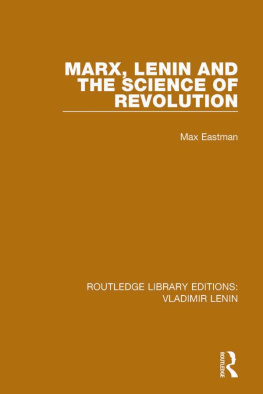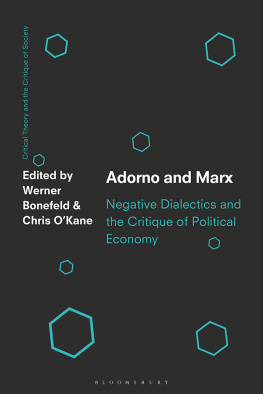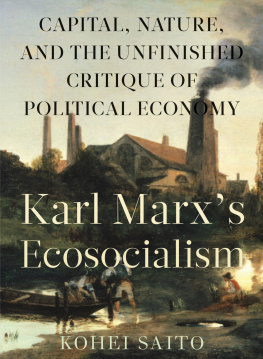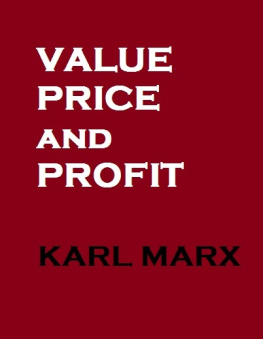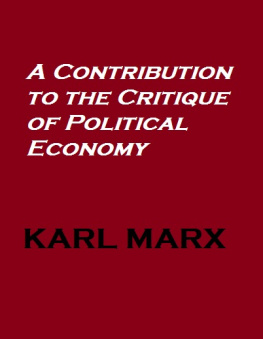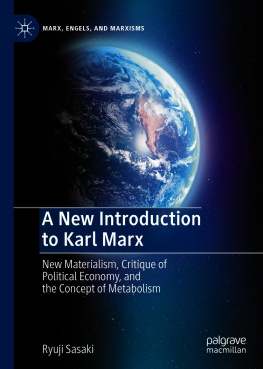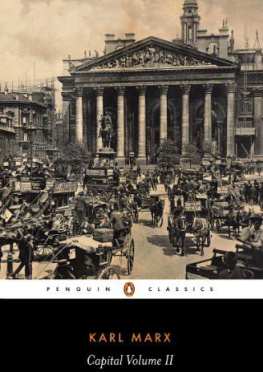Wayne Price - Marx’s Economics for Anarchists: An Anarchist’s Introduction to Marx’s Critique of Political Economy
Here you can read online Wayne Price - Marx’s Economics for Anarchists: An Anarchist’s Introduction to Marx’s Critique of Political Economy full text of the book (entire story) in english for free. Download pdf and epub, get meaning, cover and reviews about this ebook. year: 2012, publisher: Zabalaza Books, genre: Politics. Description of the work, (preface) as well as reviews are available. Best literature library LitArk.com created for fans of good reading and offers a wide selection of genres:
Romance novel
Science fiction
Adventure
Detective
Science
History
Home and family
Prose
Art
Politics
Computer
Non-fiction
Religion
Business
Children
Humor
Choose a favorite category and find really read worthwhile books. Enjoy immersion in the world of imagination, feel the emotions of the characters or learn something new for yourself, make an fascinating discovery.

- Book:Marx’s Economics for Anarchists: An Anarchist’s Introduction to Marx’s Critique of Political Economy
- Author:
- Publisher:Zabalaza Books
- Genre:
- Year:2012
- Rating:4 / 5
- Favourites:Add to favourites
- Your mark:
- 80
- 1
- 2
- 3
- 4
- 5
Marx’s Economics for Anarchists: An Anarchist’s Introduction to Marx’s Critique of Political Economy: summary, description and annotation
We offer to read an annotation, description, summary or preface (depends on what the author of the book "Marx’s Economics for Anarchists: An Anarchist’s Introduction to Marx’s Critique of Political Economy" wrote himself). If you haven't found the necessary information about the book — write in the comments, we will try to find it.
Wayne Price: author's other books
Who wrote Marx’s Economics for Anarchists: An Anarchist’s Introduction to Marx’s Critique of Political Economy? Find out the surname, the name of the author of the book and a list of all author's works by series.
Marx’s Economics for Anarchists: An Anarchist’s Introduction to Marx’s Critique of Political Economy — read online for free the complete book (whole text) full work
Below is the text of the book, divided by pages. System saving the place of the last page read, allows you to conveniently read the book "Marx’s Economics for Anarchists: An Anarchist’s Introduction to Marx’s Critique of Political Economy" online for free, without having to search again every time where you left off. Put a bookmark, and you can go to the page where you finished reading at any time.
Font size:
Interval:
Bookmark:
The transcripts of the 2006 meetings [of the governors of the Federal Reserve Board and the presidents of the 19 regional banks] clearly show some of the nations pre-eminent economic minds did not fully understand the basic mechanics of the economy that they were charged with sheparding. The problem was not a lack of information; it was a lack of comprehension, born in part of their deep confidence in economic forecasting models that turned out to be broken.
NY Times (January 13, 2012); p. A3.
The world is facing upsetting upheavals, with aspects which are political, military, ecological, cultural, and even spiritual. Clearly this includes a deep economic crisis, overlapping with all other problems. We need to understand the nature of the economic crisis if we are to deal with it.
Of the theories about the economy, the two main schools are bourgeois, in the sense that they advocate capitalism. Both the conservative, monetarist, unrestricted-free-market school and the liberal/social democratic Keynesian school exist to justify capitalism and to advise the government how to manage the capitalist economy.
The only developed alternate economic theory is that of Karl Marx. His theory was thought-out to guide the working class in understanding the capitalist system in order to end it (one reason he called his theory a critique of political economy). Other radicals, particularly anarchists, developed certain topics relating to economics, such as the possible nature of a post-capitalist economy. But no one, besides Marx, developed an overall analysis of how capitalism worked as an economic system. Therefore I have focused on Marxs work, even though I am an anarchist and not a Marxist (nor an economist for that matter). By this I mean I do not accept the total worldview developed by Karl Marx and Friedrich Engels, even though I agree with large parts of it.
I make no claims for originality. At most, when there are differing interpretations of Marxs theory, I may take a minority position. But I am focusing on the theory of Marx, as expressed in the three main volumes of Capital, the Grundrisse, and a few other works, and in the work of his close collaborator and comrade, Friedrich Engels.
Otherwise I am not covering Marxist theory, which includes post-Marx commentators, some of whom disagree with fundamentals of Marxs views. For example, many self-styled Marxist political economists reject Marxs labour theory of value. Even more reject his tendency of the rate of profit to fall. Many reject the possibility of state capitalism. Most are de facto advocates of state capitalism! (Most social democratic/reformist Marxists call on the existing state to intervene in the economy, in order to bolster capitalism. Most revolutionary Marxists seek to overturn the existing state and to create a new state which would replace the bourgeoisie with state ownership while maintaining the capital/labour relationship.) At most, I will have to touch on some post-Marx Marxists, as when discussing imperialism and the epoch of capitalist decay.
There have been many versions of Introductions to Marxist Economics, starting with Marx himself, in his Value, Price, and Profit and Wage-Labour and Capital, not to mention vast numbers of more sophisticated works on the topic. Very rarely has there been anything on this topic by an anarchist, written for anarchists and other libertarian socialists. I suspect it may be useful today.
Yet how can anarchists learn anything from Marxists? The First International was torn apart in a bitter faction fight between the followers of Marx and those of Michael Bakunin, the founder of anarchism as a movement. The Second (Socialist) International did not let anarchists join. Following the Russian Revolution, the regime of Lenin and Trotsky had anarchists arrested and shot. In the Spanish revolution of the 1930s, the Stalinists betrayed and murdered the anarchists. More generally, the Marxist movement has led, first, to social-democratic reformism and support for Western imperialism, and, second, to mass-murdering, totalitarian, state capitalism (miscalled Communism). Finally it collapsed back into traditional capitalism.
But both Marxism and anarchism grew out of the 19th century socialist and working class movements. Both had the same goals of the end of capitalism, of classes, of the state, of war, and of all other oppressions. Both focused on the working class as the agent of revolutionary change, in alliance with other oppressed parts of the population.
Yet anarchists rejected Marxs concepts of the transitional state (the dictatorship of the proletariat), of a nationalised and centralised post-capitalist economy, of the strategy of building electoral parties, and of the tendency toward teleological determinism. Instead, anarchists sought to replace the state with non-state federations of workers councils and community assemblies, to replace the military and police with a democratically-organised armed people (a militia), and to replace capitalism with federations of self-managed workplaces, industries, and communes, democratically planned from the bottom-up.
However, many anarchists expressed appreciation for Marxs economic theory. This began with Bakunin and continues to today. They believed that it was possible to unhook it from Marxs political strategy. For example, Cindy Milstein, an influential US anarchist, wrote in Anarchism and its Aspirations, More than anyone, Karl Marx grasped the essential character of what would become a hegemonic social structure articulated most compellingly in his Capital (2010; p. 21).
Some radicals have argued that there was two sides to Marxism (Marxs Marxism that is) and I agree. One side was libertarian, democratic, humanistic, and proletarian, and another side was authoritarian, statist, and bureaucratic; one side was scientific and one side was determinist and scientistic (pseudo-scientific). From this viewpoint, Stalinist totalitarians had used both sides of Marxs Marxism, not only the centralising, authoritarian aspects, but even the positive, libertarian and humanistic aspects, in order to paint an attractive face over their monstrous reality. So they have misled hundreds of millions of workers and peasants in mass movements which thought they were fighting for a better world.
Does that mean that libertarian socialists should reject all of Marxs work, even those positive aspects? What is the alternative? If we reject Marxs system, we are essentially left with bourgeois economic theory, rationalisations of a social system which also has a history of bloodshed, mass suffering, tyranny (including racial oppression and Nazi genocide), and two world wars. This is not a superior record to that of Marxism.
There has long been a minority trend within Marxism which has based itself on the humanistic and libertarian-democratic aspects of Marxs concepts. This goes back to William Morris, the Britisher who worked with Engels while being a friend of Peter Kropotkin. It continues to todays autonomist Marxists. The version of Marxist economics I learned was heavily influenced by the Johnson-Forrest Tendency (C.L.R. James and Raya Dunayevskaya) and by Paul Mattick (of the council communists).
I am not arguing here whether these libertarian Marxists were correct in their understanding of Marxism, as opposed to the authoritarianism of Marxist-Leninists. I am only pointing out, empirically, that it was possible for some to combine Marxist economics with a politics which was essentially the same as anarchism. I draw the conclusion that it is possible for anarchists to learn from Marxs critique of political economy.
Font size:
Interval:
Bookmark:
Similar books «Marx’s Economics for Anarchists: An Anarchist’s Introduction to Marx’s Critique of Political Economy»
Look at similar books to Marx’s Economics for Anarchists: An Anarchist’s Introduction to Marx’s Critique of Political Economy. We have selected literature similar in name and meaning in the hope of providing readers with more options to find new, interesting, not yet read works.
Discussion, reviews of the book Marx’s Economics for Anarchists: An Anarchist’s Introduction to Marx’s Critique of Political Economy and just readers' own opinions. Leave your comments, write what you think about the work, its meaning or the main characters. Specify what exactly you liked and what you didn't like, and why you think so.

